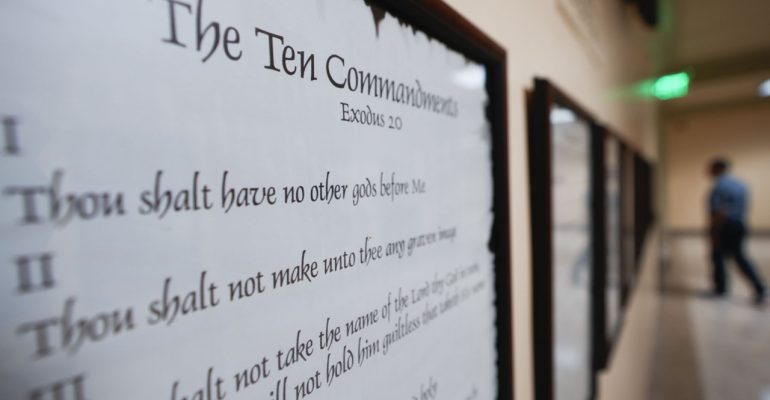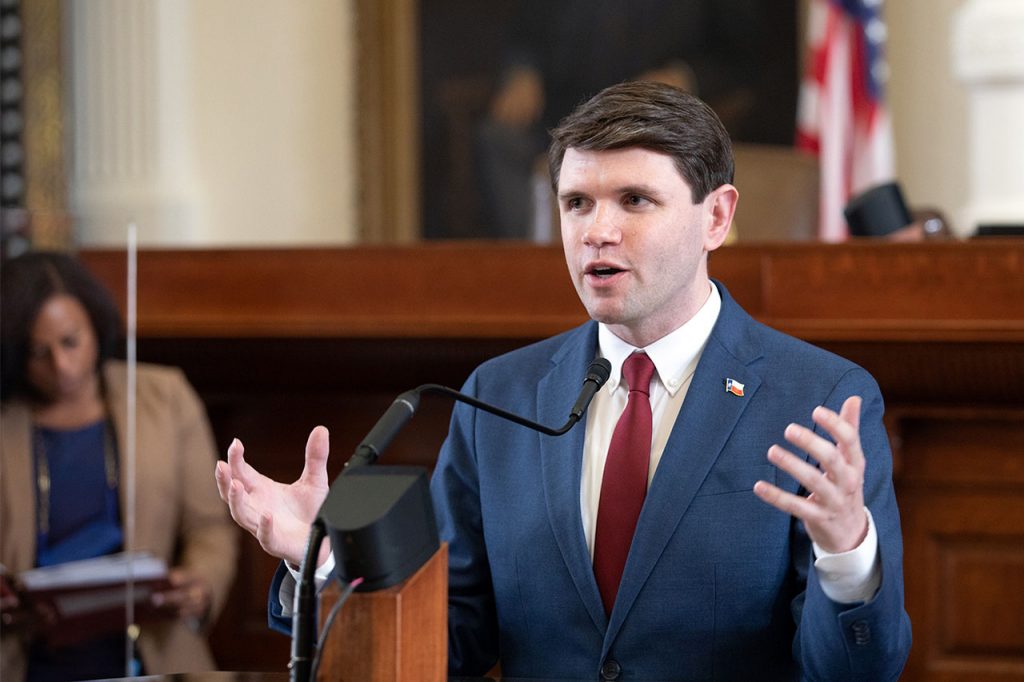Bills to enhance religion in schools spur fights between faiths
July 5, 2024 2024-07-08 17:39Bills to enhance religion in schools spur fights between faiths

Bills to enhance religion in schools spur fights between faiths
As lawmakers push faith-focused education bills, the statutes are facing pushback from an unexpected source: other religious people.
When Louisiana Gov. Jeff Landry was asked to defend his support for a new state law requiring public schools to display a version of the Ten Commandments in public classrooms, he made sure to touch on the bill’s obvious religious connections.
“This country was founded on Judeo-Christian principles, and every time we steer away from that, we have problems in our nation,” Landry, a Catholic, said during an interview with Fox News.
But just a few days later, it was Christian clergy — along with an array of religious leaders and parents of various faiths — who filed a lawsuit against the new statute, backed by the Americans United for the Separation of Church and State, the Freedom From Religion Foundation and offices of the ACLU.
“As a minister, this law is a gross intrusion of civil authority into matters of faith,” the Rev. Jeff Sims, a Presbyterian Church (U.S.A.) minister and plaintiff in the case, said in a press conference about the lawsuit. “It interferes with the administration of God’s word, co-ops the word for the state’s own purposes, or claims God’s authority for the state.”
Last month, Oklahoma Superintendent of Public Education Ryan Walters issued a directive requiring schools to “incorporate the Bible, which includes the Ten Commandments, as an instructional support,” and has said teachers who fail to teach students about the Scripture could risk losing their license.
“We’re proud to be the first state to put the Bible back in school classrooms,” Walters said in an interview with News Nation.

Bills pushing school chaplains share common traits, likely a byproduct of the religious groups behind them. According to The New York Times, the National Association of Christian Lawmakers — a new group formed in 2020 — worked with lawmakers in Florida, Louisiana and Texas to pass chaplains bills. The Texas bill was also spurred by a group of activists affiliated with the National School Chaplain Association.
Republican lawmakers did not amend the chaplains bill to bar proselytizing or impose credentialing requirements for chaplains, leaving it up to individual school districts to outline parameters themselves.
Where the chaplains bills have become law, criticism has been a constant — especially from religious groups. In March, a coalition of religious organizations signed a letter condemning efforts to install public school chaplains as “greatly flawed” and as threatening “the well-being, education, and religious freedom of our students.”
In Texas, as school boards across the state gathered in recent months to vote on whether to allow chaplains in their regions, faith leaders regularly appeared to voice disapproval, and more than 100 chaplains signed a petition arguing religious counselors in public classrooms would be “harmful” to students.
“Because of our training and experience, we know that chaplains are not a replacement for school counselors or safety measures in our public schools, and we urge you to reject this flawed policy option: It is harmful to our public schools and the students and families they serve,” the letter reads.

Proponents of the new slate of faith-focused bills appear confident the courts will back them — especially the current conservative-leaning Supreme Court. “If we get sued and we get challenged, we will be victorious, because the Supreme Court justices (Trump) appointed actually are originalists that look at the Constitution and not what some left-wing professor said about the Constitution,” Louisiana Gov. Jeff Landry said.
But religious opponents to such laws say they are prepared to combat them. In the press conference with those suing Louisiana over its Ten Commandments law, Joshua Herlands, a Jewish parent and one of the plaintiffs in the case, laid plain what he feels the debate is ultimately about.
“The displays distort the Jewish significance of the Ten Commandments in several places and send the troubling message to students — including my kids — that they may be lesser in the eyes of the government because they do not necessarily follow this particular version, or any version, for that matter, of the religious text,” Herlands said. “The state is dividing children along religious lines.”
Source: Religion News Service (RNS)







